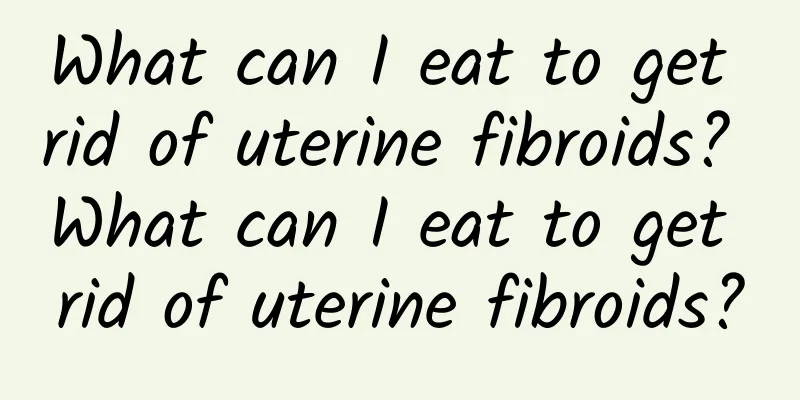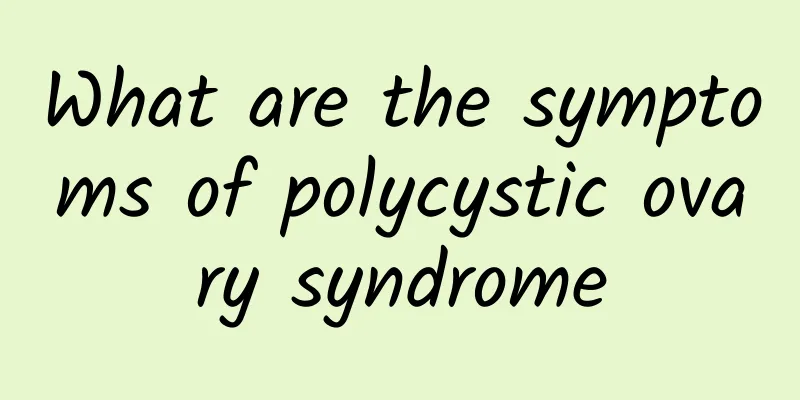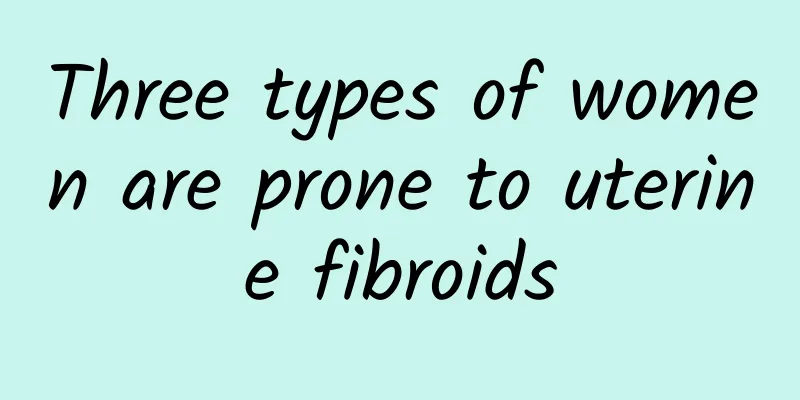What can I eat to get rid of uterine fibroids? What can I eat to get rid of uterine fibroids?

|
Uterine fibroids are common benign tumors in gynecology. They usually grow on the wall of the uterus. If they are not treated, they may cause certain troubles to women's life and fertility. So, what foods can help remove uterine fibroids? Next, we will introduce them to you in detail. First of all, a balanced diet is an important part of helping to remove uterine fibroids. A reasonable diet is very helpful in relieving the symptoms of uterine fibroids and promoting the shrinkage of fibroids. The following are some foods that are helpful in fighting uterine fibroids: 1. Fruits and vegetables: Fruits and vegetables rich in vitamins and minerals, such as tomatoes, lotus roots, and pears, are often considered the first choice of food. Some of these fruits and vegetables, such as winter melon and cucumber, contain a lot of water and fiber, which can help lower estrogen levels and thus help slow the growth of uterine fibroids. 2. High-fiber foods: High-fiber foods are an important choice, such as oats, whole wheat bread, brown rice, etc. These foods can promote intestinal peristalsis, promote fecal excretion, reduce the accumulation of waste and estrogen in the body, and help slow the growth of uterine fibroids. 3. Foods rich in phytoestrogens: Soybeans and soy products are rich in phytoestrogens, which can slow down the growth of uterine fibroids. However, women need to eat these foods in moderation to avoid excessive intake of phytoestrogens. 4. High-quality protein: A moderate amount of high-quality protein can increase satiety and is also very beneficial for slowing the growth of uterine fibroids. Protein from fish, poultry and eggs is a good choice, but be careful to avoid excessive intake to avoid increasing the growth of fibroids. To be clear, the foods listed above will not remove uterine fibroids, but they can help relieve your symptoms and slow their growth. In addition, we need to understand some other considerations: 1. Control your weight: Obesity is closely related to the formation and growth of uterine fibroids. Therefore, controlling your diet and exercising moderately are important ways to help slow down the progression of the disease. 2. Avoid irritating foods: such as chili peppers, alcohol and caffeine, which may cause the production and release of estrogen, thereby accelerating the growth of uterine fibroids. 3. Regular check-ups: Uterine fibroids are potential tumors that require regular check-ups to ensure they do not grow larger or cause other complications. In summary, dietary conditioning for uterine fibroids cannot cure the disease itself, but good eating habits can relieve symptoms and slow down the growth of fibroids. It is important to have a balanced diet, choose foods rich in vitamins and fiber, control your weight, avoid irritating foods, and undergo regular checkups. But please note that if the symptoms of uterine fibroids are severe or have a significant impact on your quality of life, it is recommended to seek medical attention in a timely manner, consult with a doctor, and develop a corresponding treatment plan. Only professional doctors can provide more accurate treatment suggestions and plans based on actual conditions. |
Recommend
How to diagnose cervical warts accurately
Cervical warts have caused great harm to countles...
Cost of treatment for recurrent functional uterine bleeding
Functional uterine bleeding, also known as DUB, i...
More than half of middle and high school students are addicted to sweet drinks and drink them more than 4 days a week
The habit of craving for sweet drinks is very com...
What are the benefits of fumigation for uterine fibroids? Fumigation is helpful for uterine fibroids
What are the benefits of fumigation for uterine f...
Let's take a closer look at what is spontaneous abortion.
Many families have fallen into infinite grief due...
Is it serious to have a left ovarian cyst?
Ovarian cyst is a common gynecological disease. O...
What causes pelvic inflammatory disease
Pelvic inflammatory disease is a common gynecolog...
Are uterine fibroids serious? How big is a uterine fibroid considered serious?
How serious are uterine fibroids? Uterine fibroid...
Habitual miscarriage is caused by these 5 factors
There are many reasons for women to have habitual...
Experts suggest not to be too harsh on uterine fibroids
In recent years, the incidence of some diseases h...
What are the clinical manifestations of ectopic pregnancy?
Ectopic pregnancy is a common clinical disease. I...
Symptoms and treatments of uterine polyps Know these to understand uterine polyps
Uterine polyps are a common gynecological disease...
Is endometrial tuberculosis dangerous?
Endometrial tuberculosis is a common gynecologica...
What are the complications of uterine fibroids?
Uterine fibroids are the most common benign tumor...
What to eat after cervical erosion surgery
After the cervical erosion surgery, there is no m...









